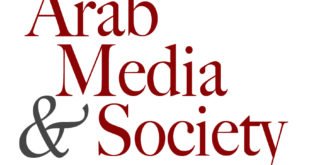The US presidential election of 2004 attracted an unprecedented amount of international media attention, perhaps nowhere more so than in the Arab world, where the impact of American policy has made itself acutely felt in the three years since September 11. Concerns over the war in Iraq, combined with frustration …
Read More »Arab World
Al Jazeera Update: More Datelines from Doha and a Code of Ethics
In a fast-changing world, easy observations remain in consciousness long after they have become invalid. So it is with the conceit that Al Jazeera put Qatar on the map and not visa versa, or the variant that Al Jazeera is more important as a regional power than the State of …
Read More »US International Broadcasting Strategies in the Arab World: An analysis of the Broadcasting Board of Governors’ strategy from a public communication standpoint
The US government has devised a plan to repair its image in the Arab World. This plan includes generously-funded, government-sponsored international broadcasting, known in the past as Voice of America or Radio Free Europe. Today, under the guidance of the Broadcasting Board of Governors (BBG), two new programs have been …
Read More »Blending in: Arab Television and the Search for Programming Ideas
From the 1890s until the 1950s, the inventors of television thought of it as a means for disseminating information in a fashion similar to print, radio, and film. By the early '60s, media use and consumption emerged as a cultural concern in the debates on the "consumer society." The '70s …
Read More »NourSat, the New Satellite in the East
There's a new satellite beaming towards the Middle East: "NourSat" (meaning "Light" Sat) is part-owned (30 percent) by the giant Mawared Group, the same company that has financed Orbit this past 10 years. NourSat is the name given to a handful of beams on a new Intelsat satellite operating …
Read More »Resource Documents – MMDS and the New Satellite Television Technologies: A Media Explosion in the Arab World
In 1995, TBS senior editor and publisher S. Abdallah Schleifer presented two substantially similar papers at two different conferences a week apart--the Broadcast Education Association convention in Las Vegas and the 12th Annual Symposium of the Center for Contemporary Arab Studies (CCAS), devoted that year to "The Information Revolution in …
Read More »Report on the 58th Annual Middle East Institute Conference: “The Use and Limits of Power in the Middle East”
Panel: "Media Diplomacy: Who Controls the Control Room?" National Press Club, Washington, D.C. 5-6 October 2004 By far the most lively panel during October's annual Middle East Institute (MEI) conference in Washington, D.C., was "Media Diplomacy: Who Controls the Control Room?" featuring interesting insights from independent filmmaker Jehane Noujaim and The …
Read More »Arab Women and the New Media: Empowerment or Disempowerment?
Cambridge Arab Media Project: The Media and Political Change in the Arab World, 29-30 September 2004 "Empowerment" is a term that appeared for the first time in the UN's World Survey on the Role of Women in Development (1986). It referred to the productivity of agriculture, and was defined as a process …
Read More »Remarks in Response to Saad Eddin Ibrahim
Cambridge Arab Media Project: The Media and Political Change in the Arab World, 29-30 September 2004 Thank you very much. I am actually very proud to talk after Dr. Saad Eddin Ibrahim, who is one of those people who inspired our thoughts when we were students--political science students at Cairo …
Read More »Thoughts on Arab Satellite Television, Pan-Arabism, and Freedom of Expression
Cambridge Arab Media Project: The Media and Political Change in the Arab World, 29-30 September 2004 Good morning everybody. Let me start by expressing my gratitude at being invited to this event and also for the very strong start that we had last night, which makes my job easier this …
Read More » Arab Media & Society The Arab Media Hub
Arab Media & Society The Arab Media Hub

